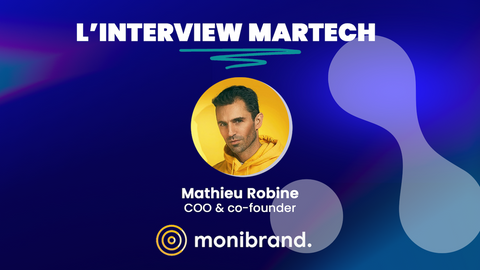Influencer marketing has solidified its place at the heart of marketing and digital departments in recent years. Previously delegated to communication agencies, brands are now increasingly placing influence at the heart of their strategies and are equipping themselves with the platforms and tools they need to strengthen their approach.
Today, we will cover the following topics to dive into influencer marketing and the platforms that are shaping it:
- What is influencer marketing?
- What are influencer marketing platforms? What are some examples?
- The social listening and social analytics companies investing in influencer marketing
- The hybrid models between technology and consulting
What is Influencer Marketing?
First and foremost, let’s define what an influencer is. In marketing terms, an influencer is “a person with the ability to influence potential buyers of a product or service by promoting or recommending the items on social media”. Influencers essentially just public figures on social media. They are arguably most popular on Instagram, but exist across other social media channels as well, specifically TikTok in recent months. They have large followings and regularly post content and interact with their audience, and are usually specialized in an industry such as fashion, beauty, travel, fitness, sports, gaming, etc. and they discuss products and services related to their specialty.
The rise of social media and influencers in general has led to a whole new type of marketing: influencer marketing. Itcan be defined as:
A type of social media marketing that uses endorsements and product mentions from influencers–individuals who have a dedicated social following and are viewed as experts within their niche.
SproutSocial
Essentially, in exchange for compensation or free items, influencers will promote products to their audiences on social media to “influence” them to try and purchase products. Influencer marketing is effective because of trust. Influencers spend a long time building trust with their followers so they are seen as authentic and trustworthy. This can often work better than traditional marketing, especially in a world when consumers have become more suspicious of brands and advertising.
Depending on the objectives set by a brand, influencer marketing allows brands to promote their products and services within targeted audiences and communities to give credibility to their brand, improve their reputation, and increase sales.
Nowadays, there is more than one type of influencer. We now have:
- Nano-influencers
- Micro-influencers
- Mid-level influencers
- Macro-influencers
- Mega-influencers
Each level of influencer can serve a marketing function. For example, Mega and macro influencers are great for overall awareness of your brand and reaching wide audiences, while micro and nano influencers bring credibility and authenticity to your brand.
The “pyramid of influence” is a way to visualize this hierarchy of influencers. Here are a couple of examples:


The market has grown exponentially in recent years. In fact, the industry is set to grow to approximately $13.8 Billion in 2021! (source: InfluencerMarketingHub)

Influencer marketing has become increasingly more important for overall marketing strategies in large part because it helps deliver a strong ROI. In fact, 89% say the ROI is comparable to or better than other channels! (source: SproutSocial)

In a survey conducted by InfluencerMarketingHub, 90% of respondents believe influencer marketing to be an effective form of marketing. This huge number reflects it’s growing popularity, and we think it’s safe to say that it is here to stay for a while!
To achieve an effective influencer marketing strategy, brands use the assistance of technology. The martech space has been populated with more and more influencer solutions, whether it be a platform dedicated to the subject itself or modules and add-ons to existing platforms.
What are Influencer Marketing Platforms? What are Some Examples?
Influencer marketing platforms are specialized SaaS solutions that are designed to help marketers execute their strategies from A to Z. They can do things like identify influencers in your industry, pull in relevant contact information, give in-depth analytics and reporting, and more.
Here is a (by no means complete!) list of some of the most popular platforms on the market:
- Aspire HQ
- Audiense
- Buzzsumo
- CreatorIQ
- Grin
- Klear
- Kolsquare
- Linqia
- Mavrk
- #Paid
- Tagger Media
- Traakr
- Upfluence
The Social Listening and Social Analytics Companies Investing in Influencer Marketing
Influencer marketing focused platforms are not alone. There have been several other SaaS companies that have integrated influencer marketing functionalities into their existing platforms. Notably, we can see this throughout the Social Listening and Social Analytics markets.
For Social Listening platforms, they tend to focus on identifying influencers in their industry that could be potential ambassadors for their brand. Equally, they can identify influencers that may work with competitors. The same logic goes for Social Analytics tools. With the data related to a brand’s social media accounts, it is necessary to find the most engaged and visible users.
Here are some examples of tools that have embraced influencer functionalities in their platforms:
Social Listening:
- Influencer One by Talkwalker
- Audiences by Brandwatch
- Linkfluence Search
- Digimind Influencer Identification
Social Analytics:
Influencer functionality is something that you can keep your eyes out for when you are searching for new social tools.
The Hybrid between Technology and Consulting
It is also necessary to point out the fact that there are a huge amount of agencies that are dedicated to influencer marketing as well. Platforms and agencies are the two forces that drive strategies, and they are both growing. More than 240 new influencer marketing-focused agencies and influencer platforms were established in 2019. (source: InfluencerMarketingHub)
This has left many companies wondering if they need to choose between the two, or have both. This has led to a sort of “hybrid” of platforms and agencies, and the two often being mixed together. This means that there are platforms that exist that allow brands and influencers to log on and communicate directly with each other, without having to go through a “middleman”. This gives brands the opportunity to execute their influencer marketing strategies in-house.
There are varying degrees of this hybrid approach, so to better illustrate it, we can look at the three categories of influencer marketing platforms:
- Full Service: “influencer marketing agencies with proprietary platforms. They offer a wide range of services – from strategy to tactical campaign execution. These companies don’t require their customers to use their platform, making the technology a nice-to-have.”
- Managed Platforms: “hybrid ‘platform-agencies’ with fewer managed services, often requiring their customers to log in to the platform to complete tasks, communicate, and more.”
- In-House Platforms: “offer a limited scope of highly specialized consulting services for mature influencer marketers seeking to manage all aspects of day-to-day campaign execution in-house. For this reason, the consulting services are related to sophisticated needs such as advanced implementation, data operations, data insights, CRM strategy, transformation strategy, and innovation. “
Source: CreatorIQ
Every organization is different, so their needs and challenges will vary, as will their choices when it comes to technology.
If you have any unanswered questions when it comes to the technology of influencer marketing, we are happy to answer them and discuss your project.
Looking to dive into another subject? Check out our article on Social Listening.





